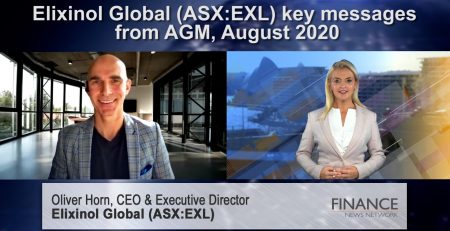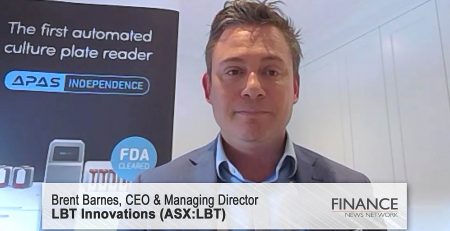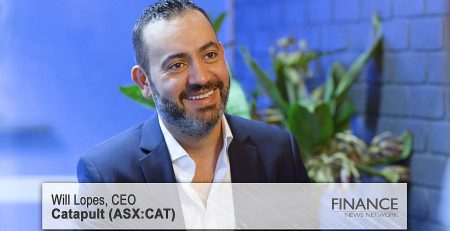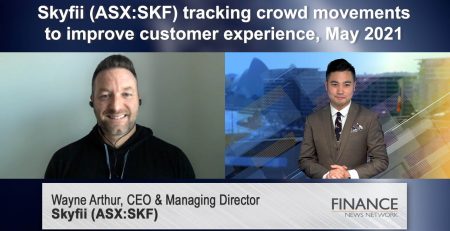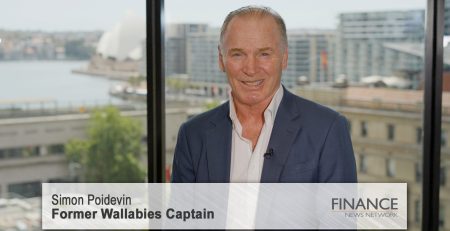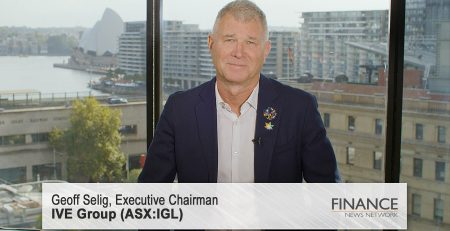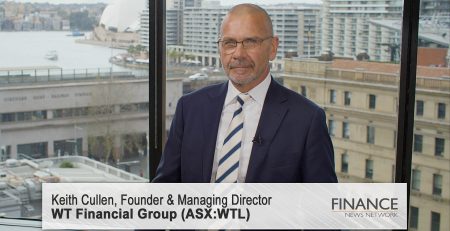Market update with Shaw and Partners, July 2023
Shaw and Partners Chief Investment Officer Martin Crabb takes a look at the current economic situation and what it means for portfolios and investments going forward.
Martin Crabb:
Hello, everyone. Welcome back to another FNN/ShareCafe Hidden Gems webinar that Shaw and Partners is very proud to support. I've got a 5 to 10 minute window here to try and get on top of markets and give you a little bit of sense of how we're seeing things and what that means for your portfolio and your investments going forward.
Quite a lot has changed in the past few weeks. It's probably worth setting a scene to try and understand what's going on in markets, that we're in a post-war environment. Typical economic policy or economic history rules don't apply in a post-war environment. Because typically what happens in a post-war environment is that governments have spent a lot of money, incurred significant fiscal deficits, and build up large amounts of debt to fight the war. And then they spend the decades after having to deal with that mountain of debt.
If we think of COVID as World War III, which in a lot of ways it was, a lot of people lost their lives, it had a huge impact on the global economy, so we need to think about it in that sense. And we need to go back to the '40s and '50s, and maybe even to the 1800s, as a playbook for what happens next. As I said, it's not a typical environment. What tends to happen after that is, there's periods of inflation coming out of a post-war environment as governments seek to inflate their way out of problems. One of the ways to deal with a lot of debt is to have a lot of inflation because it erodes the real value of that debt and it makes servicing it less of an issue going forward. Surprise, surprise, when you have a massive amount of capital that's put into the economy as we've had during COVID, you get a bout of inflation that comes out of that.
After World War II, the central banks didn't really do much to control inflation. In fact, the Bank of England left interest rates at about 1.5% until the mid 1950s, so for over a decade. And inflation ran at about 10-odd percent in the post-war environment. And obviously, that did a lot of damage to people's wellbeing. Because if you've got cost of living going up at 10% a year and your wages aren't keeping track with that, then you have a pretty rough time. The post-war environment, for a lot of countries was very, very difficult. Even for the wealthier nations, very difficult environment.
Central banks learned from that experience somewhat. And obviously, when inflation took off in the 1970s, they developed the tools to fight it, whether that be fiscal responsibility or interest rates. And obviously, those that lived through the '70s and '80s know the carnage that the interest rates ended up doing to get the economy back in check. Obviously, central banks had dual mandates and that every central bank in the world has a dual mandate. It needs to create maximum employment, so the biggest issue for social wellbeing is having a job or having access to a job. They need to do that, that's part of their key mandate.
The other one's, obviously, just to maintain price stability. We're very, very focused on the latter. We're not really that focused on the former. Employment is full almost everywhere. There's a few parts of the world where unemployment is still an issue, such as Africa, some parts of Latin America. But generally speaking, everyone who wants a job can get a job. And if you can't get it where you are, you can move pretty easily to a place where you can get a job.
You've heard of the JOLTS, the job openings in the US, 10 million job vacancies in Australia. There's about half a million job vacancies that are advertised. There's probably another half million that aren't advertised. And yet, there's not anything like that number of unemployed people. There's 5 to 6 million unemployed in the US, and there's 350 to 400,000 unemployed in Australia. Full employment, big tick for the central banks. Well done, you've got full employment.
Where they obviously get the cross is inflation. Central banks didn't cause the inflation, or you could argue that they helped facilitate it by printing money and issuing lots of bonds. But they've obviously a bit of a thumbs down on their ability to maintain price stability. Everyone's inflation fighting. That's been the story of the last two years, and one of the reasons that last year was such a horrible year for investors globally, with both bond markets and equity markets both down 20%. And most people came into this year expecting more of the same, as the economy slowed globally coming on the back of higher interest rates.
As we know, they're five and a quarter in the US, they're 4.1 here. That's obviously all above the zeros that we had during COVID, so a big tightening in monetary policy, some of the fastest tightening in history, and yet we really haven't seen that play out in the economy. We've seen a little bit of softness here and there. We've seen the consumer spending data just start to come off the boil, but we haven't really seen it in company earnings. And that's leaving a lot of investors saying that we're in for a period of lower growth and we're going to start seeing it turning up in company profits. As I said, we really haven't seen much sign of that in the Aussie market or even globally. Analysts have been revising up their forecast rather than revising them down.
We think we're in this little air pocket between when the interest rates have gone up and when the impact is felt in the economy and therefore in the share market. We're quite cautious on the outlook for earnings. We see, probably, analysts' estimates a little bit too optimistic in terms of where the economy's going. Because we do think that the consumer hit an absolute cliff in May, June and July this year as 20% of the mortgage book rolled over from fixed to floating. And obviously, you're going from sub two to plus six, so most households will face a tripling in their interest payments, and so we'll see a massive drop-off in consumer spending.
The realtime data we look at, which is provided by the big four banks here who provide their credit card spending or their debit card spending, you're looking at ANZ, Commonwealth Bank, Westpac, all produce their card spending data on a monthly basis, and that has shown a sharp drop-off in spending. We're going to see that flow through. And we're seeing a similar phenomenon in the US, where the spot data on spending footfall through shopping malls, et cetera, is showing a sharp drop-off. We anticipate that, and that's one of the reasons that the balanced portfolios that we run here at Shaw and Partners, so we manage about 1.7 billion in our SMA platform for high-net-worth clients and charities. We've been underweight equities on the basis of earnings being probably overestimated.
But what's changed in the past couple of weeks is really increasing evidence that a soft landing is becoming more likely, not less likely. If the central banks can manage to get a reduction in inflation back to their target levels without hurting the labour market, that's a very, very bullish setup for the market, and companies in general. If we can have everyone that wants the job has got a job, we don't have too much of a wages cost outbreak, which is an issue for companies, and we can get inflation down, then central banks can cut rates and they can get rates down to levels that are more normal.
If you think about the Reserve Bank in Australia… Who's just announced the new governor today, by the way… 2 to 3% targeting. The Reserve Bank's got a target of 2 to 3% inflation. Let's assume a cash rate around about 3%, and that's a more affordable mortgage market that's going to alleviate some of the stress on households. That's more of a 2024, 2025 story. But the share market is a forward-looking mechanism, it's a discounting mechanism, and so we are becoming a little bit more optimistic about the outlook for the share market. Not withstanding we're heading into a slowdown, we think numbers will get a little bit worse for companies before they get better. But as we've seen with some stocks, such as building material stocks, share prices move well ahead of fundamental.
I encourage investors to look out, particularly with smaller companies, look out a few years, don't concentrate too much on what's happening today, because that's already in the price. Take a look at what the companies are doing out into the future. And you've got three really interesting companies to listen to today. With that, Paul, I'll hand back to you.
Paul:
Thanks, Martin. The clear message there, obviously there's been a lot of debate this week, obviously the data out of the US, and the data would suggest that the US have got the inflation under control, if you talk about the soft landing, and that's the view that you just portrayed there, Martin, yeah?
Martin Crabb:
Yeah. I think it's just becoming more likely. I still think we're in for a slowdown, but I think the chances of soft landing have gone up a lot and that's very positive for markets.
Paul Sanger:
And the other thing you touched on there is, it's been a pretty tough 12 months for global equity markets, and particularly in this small cap space where we've seen valuations actually get slammed down, where valuations, where they are, inflation started coming under control. There are some great opportunities in certainly the small and mid caps. And as you said, three great companies coming up today.
Martin Crabb:
That's exactly right. The small caps are probably trading at a bigger discount to large caps may have been for a while. And emerging companies, which are even smaller than small caps, they're trading at even bigger discounts. I think if you're going to look at the space, now's a really good time to do it, Paul.
Paul Sanger:
Martin, we really appreciate your thoughts with you. Thanks, and we'll see you again in the short term.
Martin Crabb:
Thanks, Paul.
Ends
Copyright 2023 – Finance News Network
Source: Finance News Network


